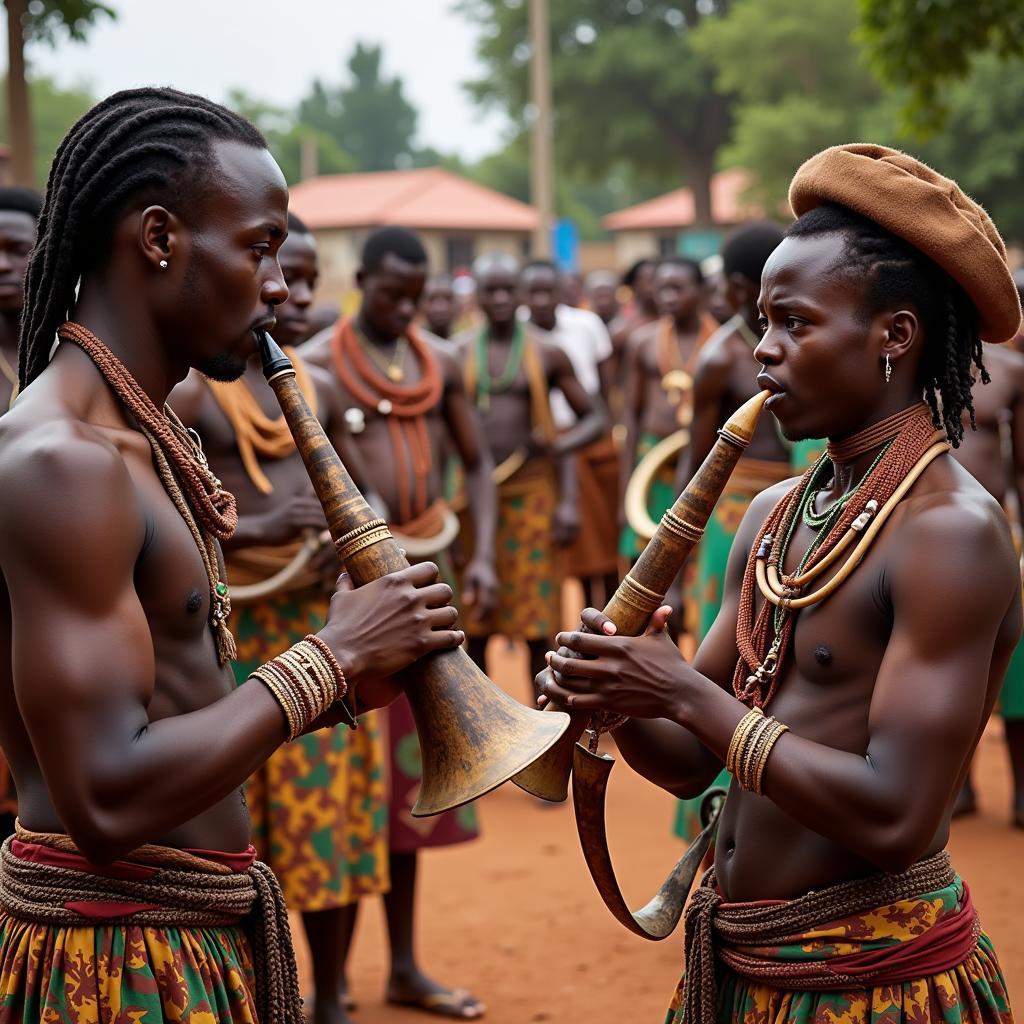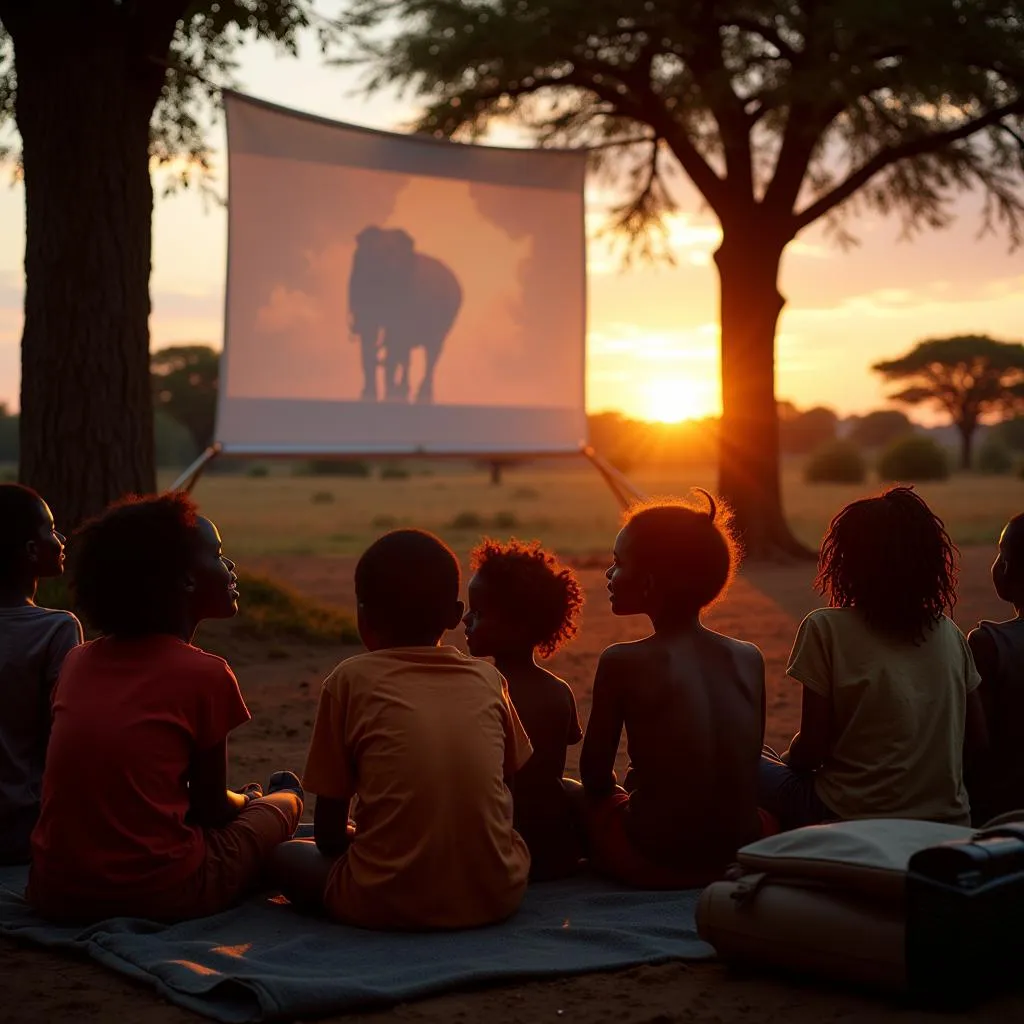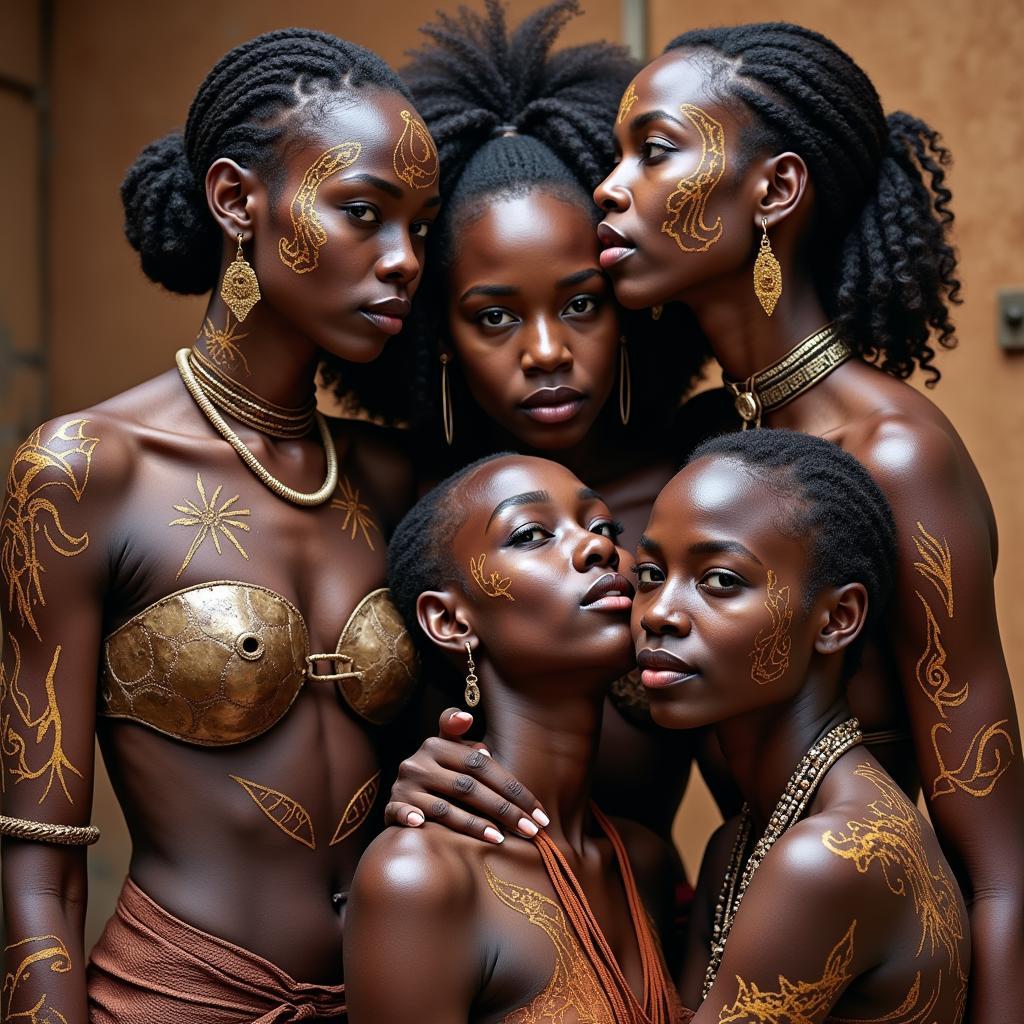Exploring the Rich Sounds of African Instruments: Aerophones
African music is renowned for its vibrant rhythms, diverse melodies, and the unique sounds of its instruments. Among these, the aerophones, or wind instruments, hold a special place, contributing significantly to the rich tapestry of African musical traditions. These instruments, ranging from simple flutes to complex horns, are integral to ceremonies, storytelling, and everyday life across the continent.
A Symphony of Wind: Discovering African Aerophones
African aerophones encompass a vast array of instruments, each with its distinct character and cultural significance. They are crafted from various materials, including wood, bamboo, gourds, animal horns, and even ivory. Their construction and playing techniques vary greatly, reflecting the diversity of the continent’s cultures. Let’s delve into the fascinating world of these wind instruments.
Flutes: Whispers of the Wind
Flutes are among the most ubiquitous aerophones in Africa. From the simple end-blown flutes of the San people to the more complex transverse flutes found in various regions, these instruments produce a wide range of melodic sounds. They are often used in solo performances, accompanying singing, or as part of larger ensembles. Some flutes, like the Ney flute of North Africa, are associated with specific spiritual practices.
Horns and Trumpets: Voices of Power and Ceremony
Horns and trumpets, often made from animal horns or tusks, play a crucial role in many African societies. They are frequently used in ceremonial contexts, signaling important events, and accompanying rituals. The sound of the Kakaki, a long metal trumpet from West Africa, is often associated with royalty and power. Similarly, the Kudu horn, made from the horn of the kudu antelope, is used in Southern Africa for communication and hunting.
 African Horns in Ceremonial Use: Depicting Traditional Rituals and Celebrations
African Horns in Ceremonial Use: Depicting Traditional Rituals and Celebrations
Reed Instruments: From Whispers to Roars
Reed instruments, such as the Algaita, a double-reed wind instrument from West Africa, add another layer of sonic richness to African music. These instruments, with their distinctive buzzing sound, are often used in celebratory contexts and are known for their expressive capabilities. They can produce both melodic and rhythmic patterns, adding a dynamic element to musical performances.
The Cultural Significance of Aerophones
African aerophones are not merely musical instruments; they are deeply embedded in the cultural fabric of the continent. They are used to communicate, express emotions, tell stories, and connect with the spiritual realm. They represent a vital link to ancestral traditions and continue to evolve, reflecting the dynamism of African cultures.
Conclusion: The Enduring Legacy of African Instruments: Aerophones
From the haunting melodies of flutes to the powerful blasts of horns, African aerophones represent a rich and diverse musical heritage. These instruments, integral to countless cultures across the continent, continue to inspire and captivate audiences worldwide. Exploring the world of African instruments: aerophones offers a fascinating glimpse into the heart of African musical traditions.
FAQ
-
What are some common types of African aerophones?
Common types include flutes, horns, trumpets, and reed instruments. -
What materials are used to make African aerophones?
Materials range from wood and bamboo to animal horns, gourds, and even ivory. -
What is the cultural significance of aerophones in Africa?
They are used in ceremonies, storytelling, communication, and spiritual practices. -
Are African aerophones still used today?
Yes, they remain vital to many African musical traditions and continue to evolve. -
Where can I learn more about specific African aerophones?
Further research can be done online, in libraries, and through ethnomusicology resources. -
What is a unique characteristic of African aerophones?
Many are deeply intertwined with cultural and spiritual practices. -
Where can I hear examples of African aerophone music?
Online music platforms, cultural festivals, and museums offer opportunities to experience these sounds.
Need assistance? Contact us 24/7: Phone: +255768904061, Email: kaka.mag@gmail.com, or visit us in Mbarali DC Mawindi, Kangaga, Tanzania.

